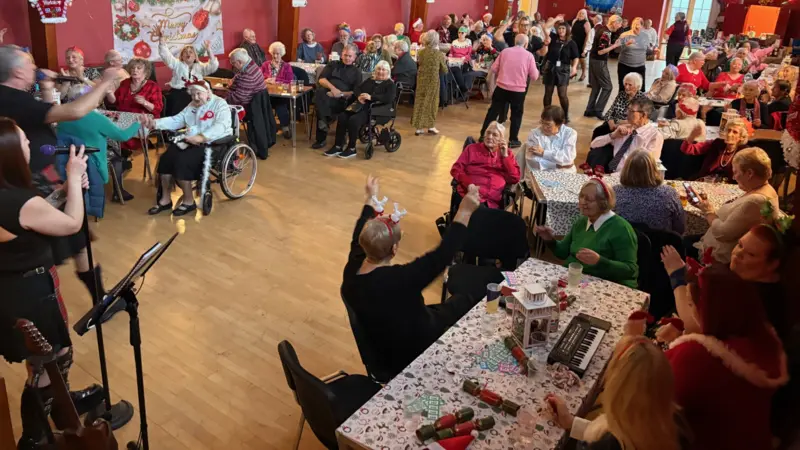About Dementia member finds fulfilment after diagnosis

Willy Gilder, originally from Northampton, moved to Edinburgh in 2019 after retiring from his career as a radio journalist. Shortly after, in April 2021, he was diagnosed with Alzheimer’s disease during lockdown. Since his diagnosis, he has worked hard to promote community support groups as well as influence policy and research surrounding dementia.
We spoke to Willy to find out more about some of the stigma and misconceptions surrounding Dementia, as well as using his role as an activist to inspire others to live well with dementia.
What would you say is the main misconception people have about dementia?
"Gosh, I think there are two big misconceptions. One, is that people often only associate memory loss with dementia. Many people, as well as having memory problems, have other difficulties like judging distances, language difficulties and changes in mood and behaviour.
"The second thing is that I think people tend not to realise that it's a progressive illness, they only picture people in the later stages of dementia. In the early and middle stages, you're not so very different from the person you were before developing symptoms, and you're quite capable of doing lots of things, often independently.
"There are many people with dementia who are leading fulfilling and rewarding lives."
If you could give one piece of advice to someone who has just been diagnosed with dementia, what would it be?
"Seek out other people in the same situation! Sitting around together, drinking tea, eating cake and having a good laugh, that was liberating for me. Being diagnosed is a tough gig. You're being told that your life may be shorter, and you face an uncertain future, but, if you get support from other people in the same boat, it really helps."
When you were diagnosed with dementia, where did you seek support?
"I was diagnosed in the middle of lockdown. I've always been active on social media, so I went on Twitter and put out a message saying, “I live in Edinburgh, I've just been diagnosed with Alzheimer's, where can I go for help?”. Various organisations got in touch and that’s when I found Age Scotland and About Dementia.
"Getting involved with different organisations has really helped me. It's a difficult thing to process when you're told that you have Alzheimer’s disease, particularly hard in the middle of lockdown, but the information and support I got from all of them was invaluable."
How has being a member of those organisations including About Dementia impacted your life?
"I always wondered what I was going to do in retirement. My great fear about retirement was that I would sink like a stone, get depressed and not know what to do. But joining organisations like About Dementia has given me a whole new sense of purpose.
"I don't want to have Alzheimer’s disease, nobody wants to have it. But, because I was diagnosed in the early stages, it’s meant I’ve been able to get involved in discussing the disease, campaigning and being an advocate for living well with dementia. I couldn't do all of those things by myself, so working with places like About Dementia has been wonderful, liberating and has given me opportunities I never had before.
"Before my diagnosis, I had never been to an international conference in my life. That was until About Dementia supported and funded my trip to the Alzheimer's Disease International Conference in Krakow. It's given me a whole new reason to get up in the morning!"
Age Scotland’s About Dementia project brings together people who live with dementia, unpaid carers and former unpaid carers of people with dementia, to shape policy and practice around the issues that affect them. Members share their lived experience and feel empowered to influence change and play a key role in decision-making.


